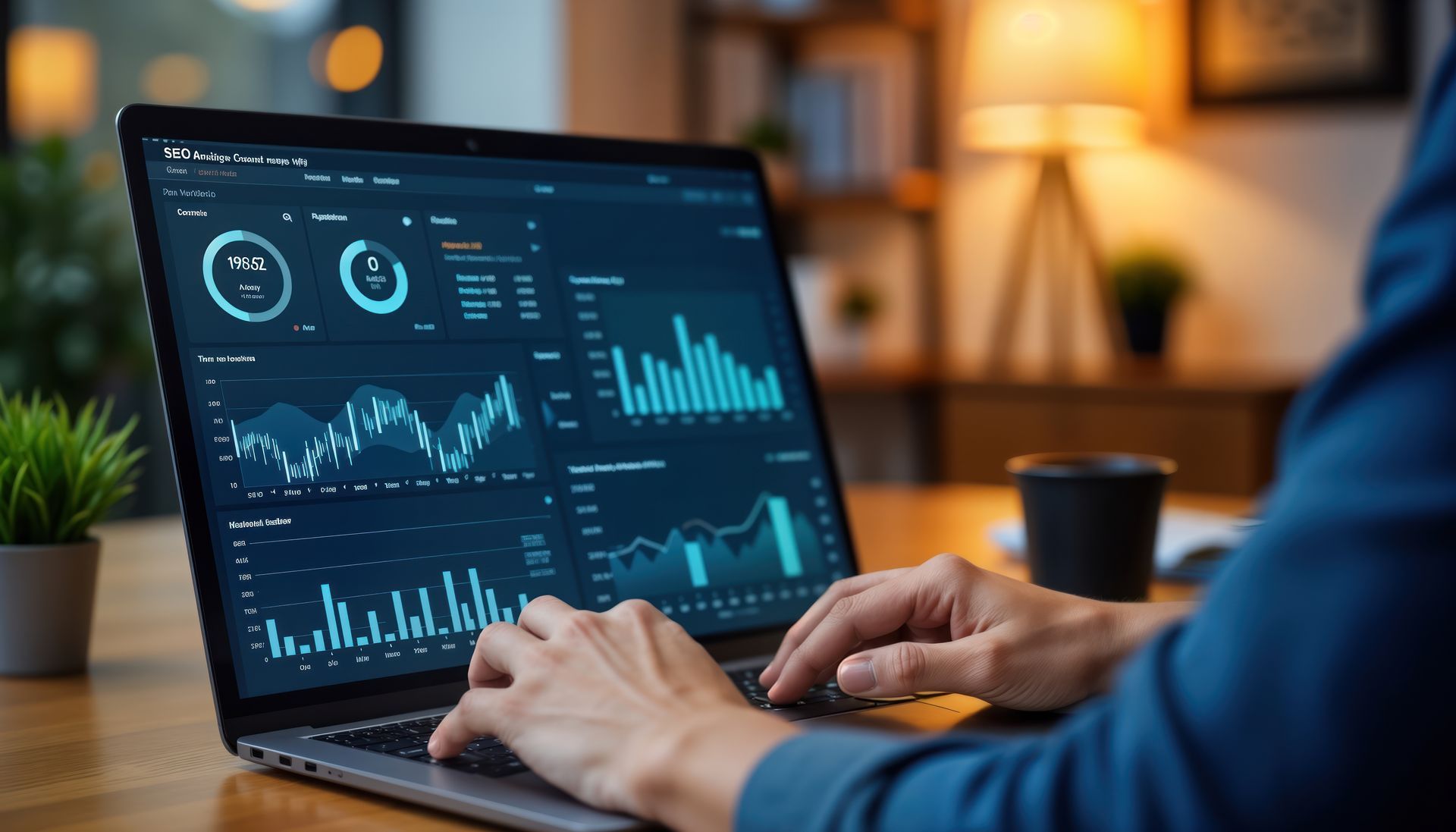Unleashing the Power of SEO: How to Boost Your Website's Visibility and Drive Organic Traffic
Unleashing the Power of SEO: How to Boost Your Website's Visibility and Drive Organic Traffic
In today's digital age, having a stunning website is not enough. To truly unleash the power of your online presence, you need to prioritise search engine optimisation (SEO). But what exactly is SEO, and how can it help boost your website's visibility and drive organic traffic? In this dynamic and ever-changing landscape, understanding the intricacies of SEO is crucial for any business or individual looking to thrive online. By strategically optimising your website's content, structure, and keywords, you can climb the ranks of search engine result pages and reach your target audience organically. With the right SEO techniques, you can not only increase your website's visibility but also attract relevant and high-quality traffic that can lead to conversions and business growth. So, if you're ready to harness the power of SEO and take your online presence to new heights, join us as we delve into the world of search engine optimisation and discover the secrets to driving organic traffic to your website.
Understanding the Importance of Organic Traffic
In the vast digital landscape, organic traffic serves as the lifeblood of any successful website. Unlike paid traffic, which requires continuous investment, organic traffic is generated naturally through search engine results. This means that when your website ranks high on search engine result pages (SERPs), you can attract valuable visitors without having to pay for each click. Organic traffic is crucial because it brings in users who are actively searching for the products, services, or information you provide. These visitors are more likely to convert into customers or engage with your content, making them highly valuable for your business. By focusing on SEO, you can increase your website's visibility to these potential customers and drive organic traffic that results in long-term success.
The Role of Keywords in SEO
Keywords are the foundation of SEO and play a vital role in determining search engine rankings. These are the words or phrases that users type into search engines when looking for information. By strategically incorporating relevant keywords into your website's content, you can signal to search engines that your website is a valuable resource for those searching for specific topics or products. Keyword research is a critical step in SEO, as it helps you identify the terms your target audience is using and understand the level of competition for each keyword. By selecting the right keywords and optimising your content around them, you can increase your chances of ranking higher in search results and attracting organic traffic.
-
On-Page Optimisation Techniques
On-page optimisation refers to the process of optimising various elements within your website to improve its search engine visibility. This involves optimising your website's content, meta tags, URLs, headings, and images. By ensuring that your content is well-structured, relevant, and keyword-rich, you can increase its chances of ranking higher in search engine results. Additionally, optimising meta tags, URLs, and headings with relevant keywords can provide search engines with valuable information about your website's content, making it easier for them to understand and index your pages. On-page optimisation techniques also include improving website speed, mobile responsiveness, and user experience, as these factors are known to influence search engine rankings. By implementing on-page optimisation best practices, you can enhance your website's visibility and attract more organic traffic.
-
Off-Page Optimisation Strategies
While on-page optimisation focuses on optimising elements within your website, off-page optimisation involves activities that take place outside of your website to improve its visibility and authority. One of the most important off-page optimisation strategies is building high-quality backlinks. Backlinks are links from other websites that point back to your website. Search engines consider backlinks as votes of confidence, indicating that your website provides valuable and trustworthy information. The quality and relevance of backlinks are crucial, as search engines prioritise websites with authoritative and reputable sources linking to them. Building backlinks can be achieved through various methods, including guest blogging, influencer outreach, and content promotion. By implementing effective off-page optimisation strategies, you can increase your website's authority, improve its search engine rankings, and attract organic traffic.
-
The Power of Backlinks in SEO
Backlinks are one of the most influential factors in SEO. Search engines consider backlinks as a vote of confidence in your website's content and authority. When other reputable websites link to your content, search engines perceive it as a sign that your website provides valuable information. However, it's important to note that not all backlinks are created equal. Quality backlinks from authoritative websites hold more weight in search engine rankings than low-quality or spammy backlinks. Building a strong backlink profile requires a strategic approach, including outreach to relevant websites, creating valuable content that naturally attracts backlinks, and monitoring and disavowing any harmful or low-quality backlinks. By focusing on building high-quality backlinks, you can improve your website's authority, increase its visibility in search results, and attract organic traffic.
-
Technical SEO: Optimising Your Website for Search Engines
In addition to on-page and off-page optimisation, technical SEO plays a crucial role in improving your website's visibility and search engine rankings. Technical SEO refers to the optimisation of your website's technical aspects, such as website speed, mobile-friendliness, crawlability, and indexability. These technical factors influence how search engines crawl, index, and rank your website. Optimising website speed ensures that your pages load quickly, providing a positive user experience and improving your chances of ranking higher in search results. Mobile-friendliness is essential, as search engines prioritise mobile-responsive websites due to the increasing number of mobile users. Ensuring that search engines can easily crawl and index your website's pages is crucial for visibility and ranking. Technical SEO also involves optimising your website's URL structure, implementing structured data markup, and optimising your website's sitemap. By prioritising technical SEO, you can enhance your website's visibility, improve user experience, and attract organic traffic.
-
Measuring and Tracking SEO Success
To gauge the effectiveness of your SEO efforts and continuously improve your strategy, it's important to measure and track key metrics. There are various tools available that can help you monitor your website's organic traffic, keyword rankings, backlinks, and engagement metrics. Google Analytics is a popular tool that provides detailed insights into your website's performance, including the number of organic visitors, their behavior on your website, and the conversion rates. Other tools, such as Google Search Console, allow you to monitor your website's visibility in search results, identify any technical issues, and submit sitemaps for indexing. Regularly analysing these metrics and making data-driven adjustments to your SEO strategy can help you identify what's working and what needs improvement, ultimately driving more organic traffic to your website.
-
Common SEO Mistakes to Avoid
While SEO can be highly effective in boosting your website's visibility and driving organic traffic, there are common mistakes that can hinder your progress. One of the most common mistakes is keyword stuffing, which involves excessively using keywords in an unnatural manner. Search engines penalise websites that engage in keyword stuffing, as it compromises the user experience and provides low-quality content. Another mistake is neglecting mobile optimisation, as search engines prioritise mobile-responsive websites due to the increasing number of mobile users. Ignoring the importance of backlinks and off-page optimisation is another common pitfall, as backlinks are crucial for establishing authority and attracting organic traffic. Additionally, neglecting technical SEO can hinder your website's visibility and crawlability. By being aware of these common SEO mistakes and avoiding them, you can optimise your website effectively and drive organic traffic to your website.
-
SEO Tools and Resources to Enhance Your Strategy
In the ever-evolving world of SEO, there are numerous tools and resources available to help you enhance your strategy and achieve better results. Keyword research tools, such as SEMrush and Mos Keyword Explorer, can assist you in identifying relevant keywords, analysing their search volume, and understanding the level of competition. SEO auditing tools, such as Screaming Frog and Sitebulb, can help you identify technical issues on your website and provide recommendations for improvement. Backlink analysis tools, such as Ahrefs and Majestic, allow you to monitor your backlink profile, identify new link-building opportunities, and analyse your competitors' backlinks. Social media listening tools, such as Brandwatch and Hootsuite, can help you monitor online conversations, identify trends, and engage with your target audience. By leveraging these tools and resources, you can enhance your SEO strategy, make data-driven decisions, and drive more organic traffic to your website.
Conclusion
In the digital landscape, search engine optimisation (SEO) plays a pivotal role in boosting your website's visibility and driving organic traffic. By understanding the importance of organic traffic, the role of keywords, and implementing effective on-page and off-page optimisation techniques, you can climb the ranks of search engine result pages and attract relevant and high-quality traffic. Backlinks and technical SEO are also crucial in enhancing your website's authority and visibility. By measuring and tracking key metrics, avoiding common SEO mistakes, and leveraging SEO tools and resources, you can continuously improve your strategy and drive more organic traffic to your website. So, embrace the power of SEO and
unlock the full potential of your online presence.

 Rating
Rating

Let's have a coffee
We’d love to hear from you! Just choose the most convenient method and we’ll get back to you as soon as we can.
Tel: 01244 629 523
Email: hello@H10marketing.co.uk
© Copyright 2024 H10 Marketing Ltd. All Rights Reserved.
Company Registration No: 11030469. VAT No. 427333211. Registered Office: Attention: Sarah Hawkins, 1 Old Marsh Farm Barns Business Centre, Old Marsh Farm Road, Sealand, Deeside, Flintshire, CH5 2LY, United Kingdom.












